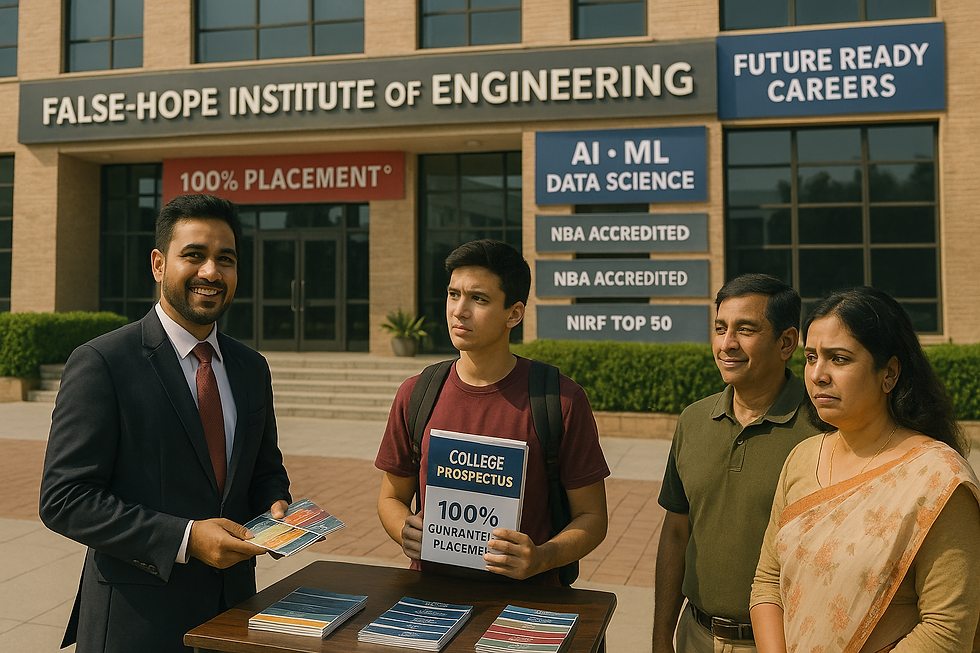The reason why 'The Life Long Learning' Program Outcome (PO 12) are still misused in campuses.
- Dr. Deepessh Divaakaran

- Nov 7, 2022
- 2 min read

As we know the 12th Program outcome defined by National Board of Accreditation and Washington Accord is ‘Life Long Learning’.
Washington Accord States Life Long Learning as “Recognise the need for, and have the preparation and ability to engage in, independent and life-long learning in the broadest context of technological change.”
Many of the institutes still have misconceptions about this program outcome and we end up mapping Course Outcome of most courses with PO 12 / WA 12 without even looking at desired output we expect from students.
This article will try to clarify lot of misconception around Life Long Learning and how they should be used in and out of classroom. Understanding the desired changes that you can expect to have in your graduate, will ultimately lead you to design the activities and assessment required to evaluate the PO 12 / WA 12.
If you are looking for your students to become high achiever, motivation is what gets them in there, but learning is what keeps them there for lifetime. Whether your students want to start up a company, create products or work on complex challenges every path demands them to become actual expertise. And that is only possible if the graduates end up becoming experts in the field they choose to be. And hence somewhere lifelong learning can also be measured with Alumni traits, not just from your syllabus.
In his classic book on decision-making, Sources of Power, psychologist Gary Klein makes exactly this point, identifying eight types of knowledge that are visible to experts yet invisible to everyone else:
1. Patterns that novices don't notice.
2. Anomalies or events that didn't happen or events that violate expectations.
3. The big picture.
4. The way things work.
5. Opportunities and improvisations.
6. Events that already happened (the past) or will happen (the future).
7. Differences that are too small for novices to detect.
8. Their own limitations.
Without all the knowledge on Klein's list, the impossible remains impossible because the items on Klein's list are literally the ingredients of becoming expert in any field. They are the requisite knowledge base. But developing this base requires learning. A ton of learning.
Lifelong learning is the technical term for this ton. Lifelong learning keeps the brain sharp, both preventing cognitive decline and training up memory. It also boosts confidence, communication skills, and career opportunities. These improvements are the reasons psychologists consider lifelong learning foundational to satisfaction and well-being.
Mapping the Life Long Learning program outcome to mere subjects in the syllabus are wrong way to look at this program outcome because ultimately you are mapping this to assessments which does not measure in any way the traits the students will develop in long term.
Life long Learning is more a trait than a knowledge in a subject and it cannot be measured using Class test, Assignments or any numerical assessments. The Life long learning can only be covered using various activities which develops skills like confidence, communication skills, identifying opportunities, meta cognitive behaviours etc.
Faculty should brainstorm and relate activities which can measure above traits to really bring fruitful value to Life Long Learning as program outcome to Graduates.




Comments